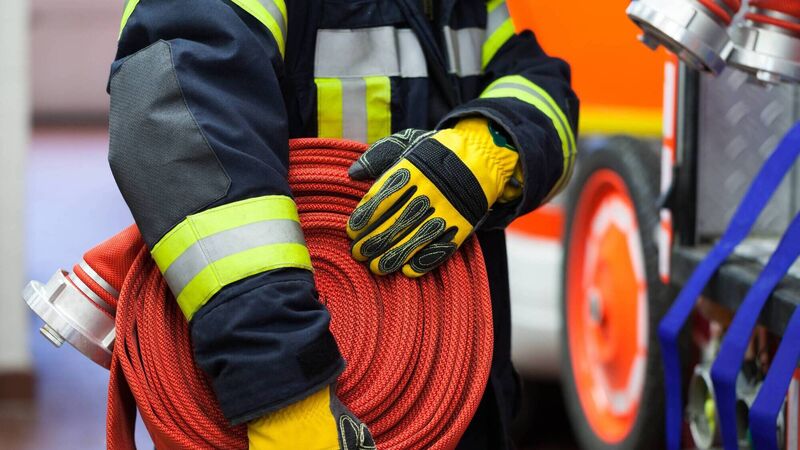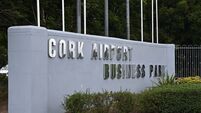Pay our firefighters more, Cork County Council told

Party colleague Cllr Michael Murtagh, a member of the emergency services, seconded the motion.
Cork’s overstretched Firefighters deserve better pay and conditions given the challenges they face such as tackling gorse fires or saving lives at the scenes of road traffic collisions, according to local Councillors.
Fine Gael Cllr Caroline Cronin called on both Cork County Council and on the Department of Local Government to review the pay of firefighters. “It is urgent that we address these vital emergency services in rural areas before it literally becomes an emergency,” said Ms Cronin.
The recent gorse fires throughout west Cork have highlighted both the shortage of part-time Cork County Council fire crews in certain stations as well as the “extreme conditions” that these crews are forced to work under.
From Sunday, February 26, to Monday the 27th, a skeleton crew of just seven firefighters based in Schull were forced to work through the night. On the Tuesday, the Schull crew was limited to just five firefighters as they continued to fight the gorse fires.
said Ms Cronin.
The crew had been reduced to seven, due to retirements and resignations by relatively young members. The part-time positions offer “unattractive rewards” for the risks and the sacrifices made by the firefighters being on call, added Ms Cronin.
Party colleague Cllr Michael Murtagh, a member of the emergency services, seconded the motion.
Read More
Mr Murtagh said the retained County Brigade fire services are now expected to provide a wide range of services, besides firefighting. “They now do river rescue and heights rescue, all the things that would have been confined to a full-time service before,” he said.
Recently, they tended to a “massive fire” at R&H Hall in Ringaskiddy. “These guys have to be skilled in breathing apparatus wearing, and rescue and management, at these scenes. We also have road traffic collisions throughout the county.”
Firefighters have to be trained in dealing with hazardous chemicals and materials, pharmaceuticals, explosions, and emergency cardiac first responses. Last Saturday, they were called out to help with a resuscitation at Cork University Hospital.
said Mr Murtagh. Heavy vehicle emergency driving is another skill.
The type of candidate required, with the capacity to fulfil these skills, are individuals of “high quality” calibre, said Mr Murtagh. “When the funding isn’t there to pay individuals like that, you don’t get that calibre, unfortunately. That’s why we’re struggling for numbers at the moment.”
Plans to increase the number of personnel in retained stations to 16 from 10 are on hold. “We can’t even get 10,” said Mr Murtagh. “There are seven in Schull.” Poor pay and conditions mean that the fire service is not conducive to family life, he added.
Environmental Director of Services, Louis Duffy, said that challenges associated with both the recruitment and retention of retained firefighter personnel are being experienced by many local authorities around the country as is evidenced in the recently published review, entitled Retained Fire Services in Ireland – A Review of Recruitment and Retention and the Future Sustainability of Service Delivery.
“The publication of this review follows extensive engagement with all relevant stakeholders, together with in-depth research and analysis of the current model for fire service delivery in Ireland and in other jurisdictions,” he said.
The review sets out recommendations in key strategic areas to ensure a sustainable and effective fire service delivery model into the future.
A process for implementation of the recommendations, which includes engagement with the Local Government Management Agency and staff interest groups, has recently commenced through the Retained Fire Services National Oversight and Implementation Group under the remit of the National Directorate for Fire and Emergency Management, added Mr Duffy.







 App?
App?


